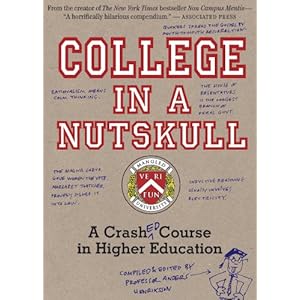 When I was small (and angry at my parents) I would fantasize about my "real" parents. They were undoubtedly rich and royal. Well, Wendy Burden never needed to fantasize. Her family may not have been royal, but they were undoubtedly rich. You see, she is a descendant of Cornelius Vanderbilt and she grew up surrounded by rather obscene amounts of money, a child of privilege, apathy, and neglect. Dead End Gene Pool is her memoir of a childhood lived mainly in the company of servants and in the rarified air of the super rich. And having read this book, I am quite certain I'm glad that no royal, rich parents came to claim me from my perfectly happy suburban existence.
When I was small (and angry at my parents) I would fantasize about my "real" parents. They were undoubtedly rich and royal. Well, Wendy Burden never needed to fantasize. Her family may not have been royal, but they were undoubtedly rich. You see, she is a descendant of Cornelius Vanderbilt and she grew up surrounded by rather obscene amounts of money, a child of privilege, apathy, and neglect. Dead End Gene Pool is her memoir of a childhood lived mainly in the company of servants and in the rarified air of the super rich. And having read this book, I am quite certain I'm glad that no royal, rich parents came to claim me from my perfectly happy suburban existence.Opening with a quick run through of her moneyed family tree, Burden starts with Vanderbilt and hops through the branches down to her own paternal grandparents. Once she settles on the family members she actually knew, she starts in on the crazy, sometimes funny, sometimes terrible life that made up her early life. Her father, suffering from depression, committed suicide when she was just six. Her alcoholic mother, written out of the will for her serial adultery, became a completely absent and neglectful parent. And Burden and her brothers ping-ponged between their mother's empty of supervision home and their wealthy grandparents' servant-filled homes. In neither place did they find the nurturing and love that children need.
Burden chronicles not only the eccentricities of the very rich (when money is no object you can order cars from Europe to be delivered to you that same day or find game that is in season somewhere in the world in order to have it for dinner the following evening or pad your entire bathroom in foam so that when you stumble and fall in your alcoholic and aged haze, you won't bruise yourself), she also lays bare the odd child that she was, obsessed with the Addams family, collecting dead animals to watch the various stages of decomposition, begging for a pony and then creating elaborate and murderous fantasies about Will's demise when it was gifted to her older brother instead of her. She writes about many of her family members as if they were fictional characters, mocking their faults (an overly flatulent grandmother and a misogynistic grandfather), exposing their immorality (Uncle Ham-Uncle Ham's Nazi fetish), and generally skewering all and sundry. In one instance she appears to think that her uncle's obsession with tracts warning against the evils of inherited wealth, which he distributed to the whole family, is laughable but really, it seems that while he may have been a buffoon, at least as Burden represents the family, his tracts weren't off base.
While there were funny anecdotes sprinkled throughout the book, this was ultimately a sad story. The absenteeism, the drug use and abuse, the mental illness, acknowledged or not, and the general lack of love and attention displayed here make it hard to call this a funny book or even one rife with dark humor. I was left with the feeling that the people in Burden's family were unpleasant and distasteful and I wouldn't have wanted to know them myself. She does have a neat turn of phrase here and there and some amount of self-awareness comes through but the narrative itself is often choppy and repetitive. This brief visit into the skeletal closets of the highest of society makes me grateful that I don't live there and it was with an unseemly sense of relief that I closed the book at the last. Although I didn't love the book myself, it is a fascinating peep into a world in which very few people live and those who enjoy the lifestyles of the rich and famous and want to know more about the grit under the facade of the houses and the cars and the possessions will undoubtedly enjoy this book for its insight into the troubled highest echelons of WASP society.
An interesting interview/article about the author in the New York Times can be found here. As a bonus, there's a slide show of rooms in her home, decorated with Vanderbilt and Burden heirlooms.
Also, Ms. Burden will be talking about the book with readers at Books on the Brain, "live" in the comment section for one hour on May 18th, 5 pm PST. Please stop by and say hi if you're able to! More information about this chat session can be found here.
 If you'd like more info about Wendy, check out her website.
If you'd like more info about Wendy, check out her website. Thanks to Lisa at TLC Book Tours for sending me a copy of the book to review.
Thanks to Lisa at TLC Book Tours for sending me a copy of the book to review.













































